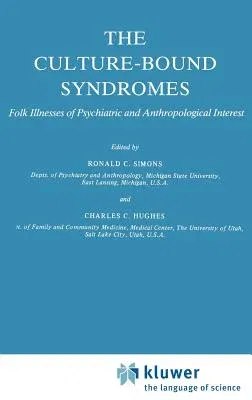The Culture-Bound Syndromes: Folk Illnesses of Psychiatric and Anthropological Interest (1985)Hardcover - 1985, 30 September 1985

Qty
1
Turbo
Ships in 2 - 3 days
In Stock
Free Delivery
Cash on Delivery
15 Days
Free Returns
Secure Checkout

Part of Series
Culture, Illness and Healing
Part of Series
Synthese Language Library
Print Length
518 pages
Language
English
Publisher
Springer
Date Published
30 Sep 1985
ISBN-10
902771858X
ISBN-13
9789027718587
Description
Product Details
Book Edition:
1985
Book Format:
Hardcover
Country of Origin:
US
Date Published:
30 September 1985
Dimensions:
23.39 x
15.6 x
3.02 cm
ISBN-10:
902771858X
ISBN-13:
9789027718587
Language:
English
Location:
Dordrecht
Pages:
518
Publisher:
Weight:
920.79 gm